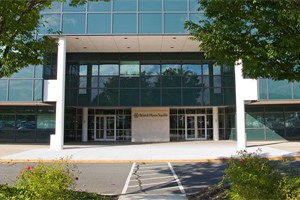
Bristol-Myers Squibb has bought drug development firm iPierian in deal, valued at up to $725m, that gives it a number of early-stage drug candidates for neurodegenerative diseases.
San Francisco-based iPierian focuses on developing compounds that target tau proteins, which form ‘tangles’ in the brains of patients with Alzheimer’s disease and some other central nervous system (CNS) disorders, and is due to start trials of its lead candidate IPN007 early next year.
While most therapeutic development in the area of Alzheimer’s has focused on the amyloid plaques that characterise the disease, a series of disappointing trial results have caused researchers to look at different drug targets, and tau has emerged as an interesting option.
BMS will have a chance to test the hypothesis pretty quickly. IPN007 is being developed in the first instance for progressive supranuclear palsy (PSP), a serious neurodegenerative disorder that progresses much more quickly than Alzheimer’s but is also characterised by tau tangle formation.
While other companies are developing tau-targeted drugs, iPierian claims to have discovered a new form of the protein – dubbed extracellular tau or eTau – that is involved in the spread of the protein throughout the CNS.
In addition to the tau-targeted pipeline, BMS will also tap into iPierian’s expertise in disease models, which grew out of earlier work on stem cells. Using targeted differentiation of stem cells the company has created a CNS model that can be used for target- and drug-discovery in vitro.
BMS has paid $175m upfront for iPierian, with the potential for additional development and regulatory milestone payments totalling $550m along with royalties on net sales.
The deal comes shortly after BMS decided to rein back its in-house neuroscience drug discovery – along with other therapeutic categories such as diabetes and hepatitis C – in order to focus on priority fields such as immuno-oncology, which has been predicted to swell into an $8bn-plus franchise.
BMS also reported its first-quarter financial results this week, confirming that it plans to complete a rolling marketing application for nivolumab – its PD-1-targeting therapy for non-small cell lung cancer (NSCLC) – by the end of this year.
The company needs its pipeline to deliver as it faces pressure on its current product portfolio, with first-quarter sales falling 1 per cent to $3.8bn as it continues to feel the effects of generic competition to legacy products.
First quarter net profit rose to $936m, up from $609m a year ago, thanks to the closure of the sale of its share in a diabetes franchise to partner AstraZeneca, which netted it $3.3bn in the quarter.




